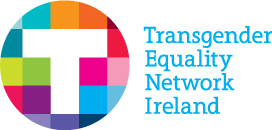TENI
Trans Healthcare Another way is possible
Transgender healthcare in Ireland urgently needs reform. Here’s how we can achieve that.
Our Government has committed to reforming transgender healthcare in Ireland. Successful models exist in the U.K. and the Netherlands that could be adopted here.
TENI is calling on Irish policymakers to engage with the Irish transgender community in Ireland, look at these successful models, and ensure that transgender healthcare here aligns with international best practices.
Incorrect care: Ireland has the worst transgender healthcare in Europe.
A 2022 report on access to gender-affirming healthcare in the EU found that Ireland has the worst healthcare system for transgender people. Multiple research papers clearly show that reliable and open access to gender-affirming healthcare is essential to improving the health and well-being of transgender people.
The Irish Government can and should reform transgender healthcare without delay. The models for those reforms are available to our policymakers.
WHO disagrees: Our Government is not following WHO guidelines for transgender healthcare.
The World Health Organisation (WHO) no longer recommends psychiatric screening or diagnosis for individuals seeking gender-affirming care. Long and invasive psychiatric evaluations are still the norm here. WHO and the World Professional Association for Transgender Healthcare (WPATH) recommend an informed consent model with GPs involved in primary care.
Informed consent is how we prescribe most medications. Gender-affirming healthcare for transgender people is no different to HRT and other gender care for cisgender people.
Ireland could care more: Transgender healthcare could be accessible locally.
Based on consultations with gender-affirming care experts and with Ireland’s transgender community, TENI is advocating for locally available, high-quality healthcare services in line with international best practices. Such approaches already function through Indigo Gender Service in the U.K. and the Trans United Clinic in the Netherlands.
NHS Indigo Clinic –https://indigogenderservice.uk/
Trans United Clinic – https://transunitedeurope.eu
Ireland could easily join the group of countries that are leaders in transgender healthcare with just four steps:
• The availability of hormone prescriptions in a primary care setting directly from specialist GPs, as practiced in the Indigo Gender Service
• Holistic support for transgender people across endocrine, elective mental health, and elective surgical services, without the requirement for psychiatric-led assessments prior to healthcare
• The development of high-quality youth services in line with the WHO and WPATH recommendations, with mental health support and access to puberty blockers on the basis parental consent
• The improvement of access pathways to gender-affirming surgery for adults
Ireland needs to do better — and Ireland can do better.
We encourage you to write to your Senators and TDs and ask that they engage with TENI and the transgender community in Ireland to reform transgender healthcare now. It can be done — there is another way!
We would also encourage community members and allies to share their concerns about the poor quality of trans healthcare in Ireland on social media using the hashtags #IncorrectCare & #TransHealthAnotherWay
Information around our Another Way is possible campaign and published materials has been taken from the following reliable sources:
• Transgender Europe, (2022). ‘Trans Health Map 2022’ https://tgeu.org/trans-health
• Newstalk Ireland. (2023). ‘Waiting Lists for the National Gender Service “likely to get worse”’. https://www.newstalk.com/moncrieff/waiting-lists-for-national-gender-service likely-to-get-worse-1463783
• The Beacon. (2023). ‘The wait to talk to the National Gender Service hits nine years’. https://the-beacon.ie/2023/01/23/the-wait-to-talk-to-the-national-gender-service-hits
• https://the-beacon.ie/2024/02/08/national-gender-service-waiting-list-surpasses-a
• HSE, (2020). Final Report of Steering Committee on the Development of Transgender Services. https://www.hse.ie/eng/about/who/primarycare/socialinclusion/lgbti/final-report-of-the-steering-committee-on-the-development-of-hse-transgender-identity-services.pdf
• Office of the Deputy Prime Minister, Ministry for Health, Malta (2023). Transgender Healthcare. https://health.gov.mt/wp-content/uploads/2023/04/Transgender_Healthcare_EN-MT.pdf
• Strauss, P., Cook, A., Winter, S., Watson, V., Wright Toussaint, D., & Lin, A. (2020). Associations between negative life experiences and the mental health of trans and gender diverse young people in Australia: Findings from Trans Pathways. Psychological Medicine, 50(5), 808-817. https://pubmed.ncbi.nlm.nih.gov/31280740/
• Tordoff D.M., Wanta J.W., Collin A., Stepney C., Inwards-Breland D.J. & Ahrens K., (2022). Mental Health Outcomes in Transgender and Nonbinary Youths Receiving Gender-Affirming Care. JAMA Network Open 5(2):e220978. https://jamanetwork.com/journals/jamanetworkopen/fullarticle/2789423
• Turban J.L., King D., Kobe J., Reisner S.L. & Keuroghlian A.S. (2022) Access to gender affirming hormones during adolescence and mental health outcomes among transgender adults. PLoS ONE 17(1): e0261039. https://journals.plos.org/plosone/article?id=10.1371/journal.pone.0261039
• World Health Organisation, (2022). International Classification of Diseases – 11. https:// www.who.int/standards/classifications/classification-of-diseases
• WPATH, (2022). Standards of Care for the Health of Transgender and Gender Diverse People, Version 8, International Journal for Transgender Health, p. 31. https:// www.tandfonline.com/doi/pdf/10.1080/26895269.2022.2100644
• HSE, (2022). National Consent Policy. https://www2.healthservice.hse.ie/organisation/national-pppgs/hse-national-consent-policy/

